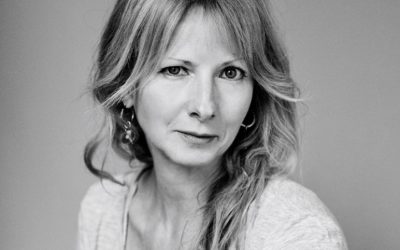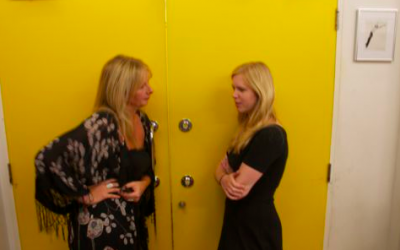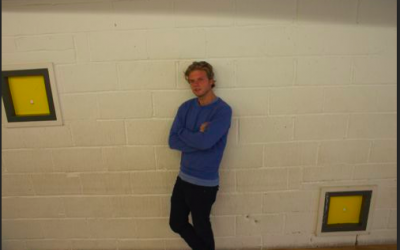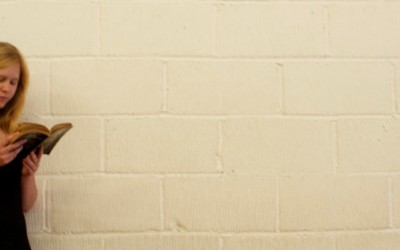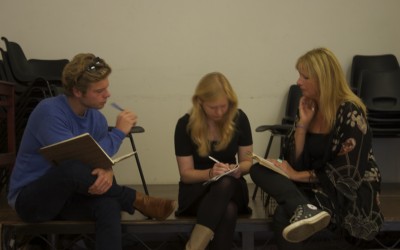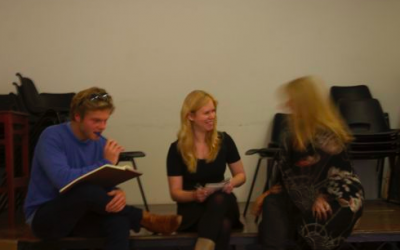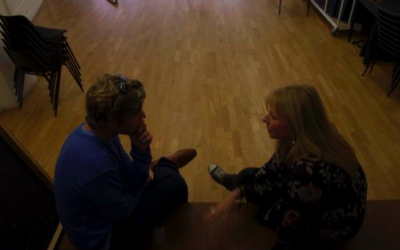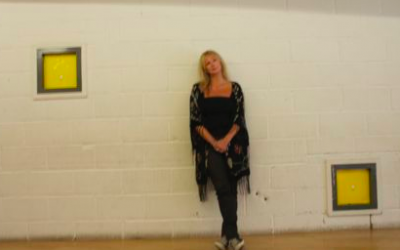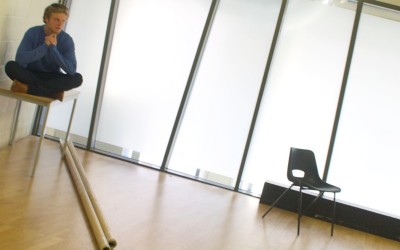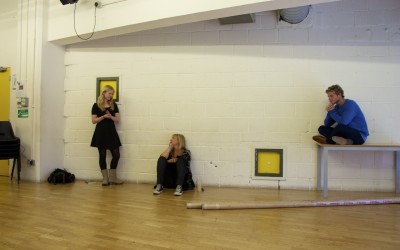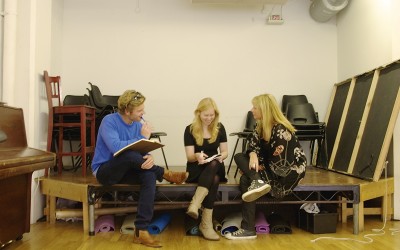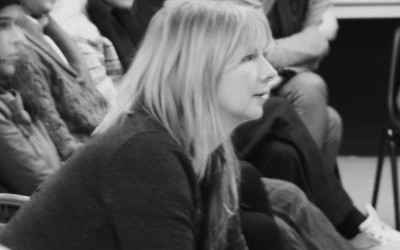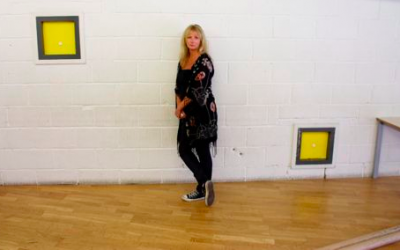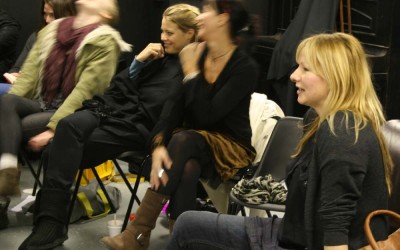Audition Doctor News
Being authentically yourself is what will give you the best chance
For Tilly Blackwood, being authentically yourself is what will give you the best chance of a successful audition. Sessions often focus on speech-work, trying to find the characters and plays that give you the best chance of landing a job or getting into drama school -...
Testimonials from former students
The many testimonials from Blackwood’s former students attest to her skill. Emma Corrin, known for portraying Princess Diana in Netflix’s The Crown, visited The Audition Doctor at the beginning of her career: “As an untrained actor new to a hugely intimidating...
Getting help with auditions
“You don’t go to a doctor if you’re well,” says Tilly Blackwood, founder of bespoke coaching service for actors The Audition Doctor. “In the same way, people don’t come to me if they’re doing fine. They come when they have a problem or a need, and I create bespoke...
Collaboration at Audition Doctor
In an article for the Independent entitled “How to tell good acting from bad acting”, Christopher Hooton wrote: “An actor's job is to know the breadth of human possibility and the depths of his or her own possibilities. He or she must pull from this well and surprise...
Road Testing Different Takes At Audition Doctor
Recently, there have been several articles where both actors and directors have spoken about how important an audience is in a play’s growth and development. Ralph Fiennes said: “It’s in front of an audience that I start to really learn what I’m doing. You rehearse,...
Making Shakespeare Accessible at Audition Doctor
Emma Rice, new artistic director of the Globe, spoke in the Telegraph about her mission of getting rid of the idea that Shakespeare was something audiences felt that they had to endure as opposed to enjoy. “There’s a lot of theatre, some of it Shakespeare some not,...
Keeping an Open Mind at Audition Doctor
In an article in The Times, Emma Rice - new artistic director of the Globe - stated that “she would like to aim for a 50-50 split between roles for actors and actresses at the Globe, despite female characters being a minority in Shakespeare’s work.” “There is a...
Show Imagination and Innovation at Audition Doctor
Last year, Ophelia Lovibond was interviewed for Whatsonstage before she appeared in Lucy Prebble’s The Effect at Sheffield Theatres (Crucible Studio). "I'm so excited…The luxury which I am realising I've not had working in film and television is the time to figure out...
Balancing Intellect and Emotion at Audition Doctor
In an interview for Whatsonstage, Kate Fleetwood spoke about Medea’s rehearsal process and said: “It's hard in rehearsals to get that contact with something emotionally whilst also trying to contain an intellectual dialogue as well; it's easy to bellow and scream your...
Gaining Confidence at Audition Doctor
In Backstage, Timothy Simons (who plays Jonah Ryan in Veep) spoke about the importance of approaching an audition from a personal perspective, rather than the perceived perspective of those on the other side of the table. “You don’t want to go in trying to force...
Instinct and Technique at Audition Doctor
At Audition Doctor, Tilly always encourages students to spend a considerable amount of time in search of the speech that they would like to work on. David Haig recently was interviewed in Whatsonstage playing King George III: "It's incredibly rare to find a role that...
Artistry and Commitment at Audition Doctor
Phillip Seymour Hoffman often spoke about the level of commitment and dedication acting required: “I think that the amount of concentration — sometimes the amount of personal exploration — it takes to do something well, can be not pleasant ... like hard work is. That...
Challenging Yourself at Audition Doctor
In an interview in The Stage, Charles Edwards said: “It’s a very tangible thing, actually, putting together a performance. It’s twisting and rearranging and changing. One feels one is creating something whole, working on a performance.” This is something that Audition...
Pushing Yourself at Audition Doctor
In the Guardian this week, David Morrissey was interviewed about the process of preparing for his role in Hangmen. Far from worrying about the potentially incendiary nature of the play, Morrissey described the anxiety he felt with regards to his own performance. “All...
Making a Shakespeare Part Your Own at Audition Doctor
This week, Mark Rylance spoke about the trap that many actors, including himself, fall into when acting Shakespeare. “[The acting ] is too slow. It’s too reverent. It is like taking a rap song in 400 years from now that we think is really wonderful and deciding it...
Taking Notes at Audition Doctor
Simon Russell Beale stated in an article for the Guardian entitled “Actors’ advice to actors”: “The actor's primary responsibility is to make the text understandable at first hearing. That's quite a big thing, and quite difficult, especially if it's a fairly...
Developing Craft and Unpredictability at Audition Doctor
Julian Fellowes recently caused a debate when explaining why he had rewritten vast swathes of his film of Romeo and Juliet: “To see the original in its absolutely unchanged form, you require a kind of Shakespearean scholarship, and you need to understand the language...
The Value of Vocational Training
Geoffrey Colman, head of acting at Central, wrote an article on the danger of aspiring actors disregarding the merits of professional training. “The cult of the untrained reigns supreme. Why wait three years, or even one – why make the effort to be trained at all?”...
Vulnerability at Audition Doctor
Vulnerability is a quality highly prized by actors. Playing a role truthfully requires the ability to empathise and a willingness to unselfconsciously open yourself up, which inevitably exposes you to judgement. This can be daunting, especially for those who are...
Choice and Experimentation at Audition Doctor
Brian Cox, Bill Paterson and Mark Thomson were interviewed in the Independent about their recent production of Waiting for Godot at the Edinburgh Lyceum. Paterson said: “Even if you’ve seen Beckett, if you’ve seen Godot, you underestimate what it needs. You tend to...
Continuous Training at Audition Doctor
Anthony Head was interviewed in The Stage this week and commented on how actors, particularly British actors, are the only artists who cease to develop their discipline after drama school. We’re the only artists who don’t practise regularly,” he explains, “and if you...
Overcoming Fear at Audition Doctor
The pianist, Sara Solovich, wrote in the Guardian about her journey overcoming stage fright and explored the nature of fear that lies in most performers. While a certain amount of fear is healthy, many students come to Audition Doctor to control the nerves that...
Pulling Shakespeare Apart at Audition Doctor
On Monday, Matt Trueman wrote a piece in the Guardian about the importance of companies such as Kneehigh, Complicite, Frantic Assembly and Filter’s approach to Shakespeare. Their refusal to be precious about the language and embracing the playing element of...
Repetition and Exploration at Audition Doctor
One of the main reasons why Audition Doctor gets so busy in the autumn is down to the fact that many drama school applicants feel that they need help with the demands of Shakespeare. In an interview for The Telegraph to promote his and Claire van Kempen’s upcoming...


